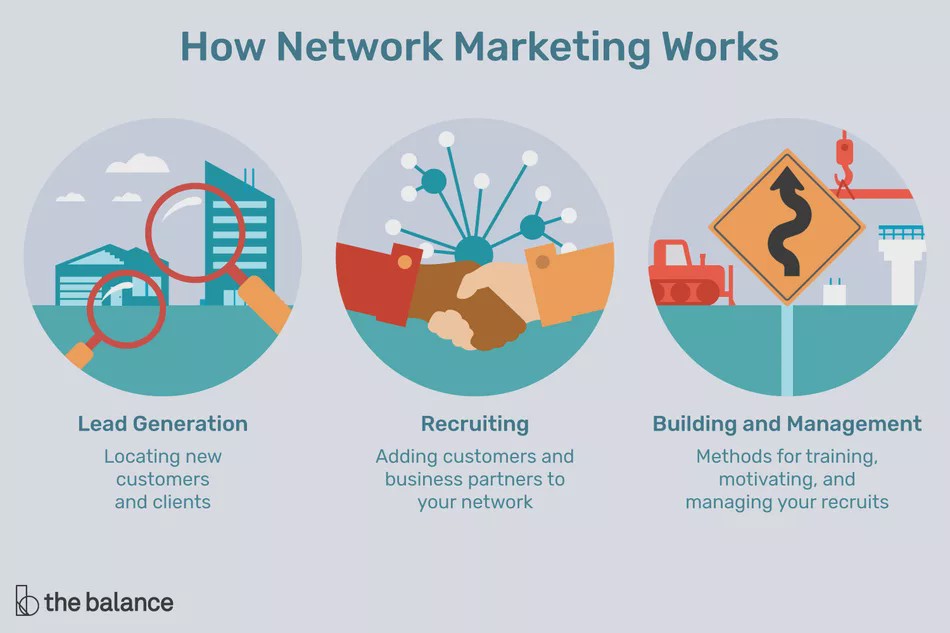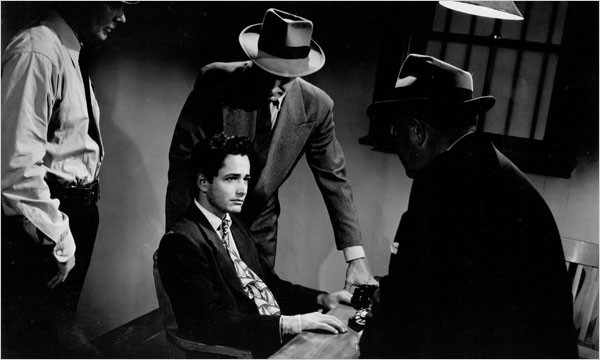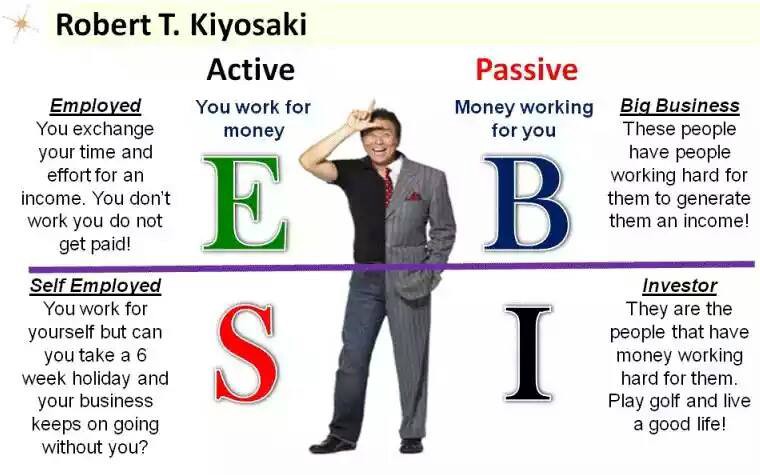
A stranger approaches and compliments your shirt. ?I love the pattern,? they say, ?Where did you get it?? You?re a little cautious ? people aren?t usually so friendly ? but you accept. The stranger asks about your education, your career aspirations, and where you think you?re headed in life.
A little deep for a stranger, but you let it slide.
The stranger says you?d be a great fit to meet their mentors. They mention a young couple who, apparently, made clever financial decisions and retired with millions in their twenties. The stranger tells you their mentors want to share this knowledge with young, ambitious people ? just like you. It?s a little odd, sure, but the stranger seems normal enough. You shake hands, exchange contacts, and part ways.
But wait, who was that?
 An open-air cafe. A perfect place for an MLM pitch.
An open-air cafe. A perfect place for an MLM pitch.
Unfortunately, these ?coincidental? experiences are far too common.
An oft-used recruiting tactic for multi-level marketing (MLM) companies, MLM participants use these public, unsolicited pitches to recruit new salespeople under the guise of ?mentorship? or a ?business opportunity.?
MLM companies ? notorious for predatory recruiting, high-pressure sales tactics, and near-guaranteed capital destruction ? are enterprises where members? earnings are based on a binary, or pyramidal, commission system. Members are paid for products they sell, new people they recruit, and people in their ?downline? who do the same.
Almost everyone involved in MLMs loses money. So why was I trying to join one?
 Multi-level Marketing is also referred to as ?network marketing,? ?referral marketing,? or ?pyramid selling.?
Multi-level Marketing is also referred to as ?network marketing,? ?referral marketing,? or ?pyramid selling.?
After being publicly pitched five times this year ? all by strangers, and all with variations on the same pitch ? I decided to investigate these MLM operations in depth. The next time I was pitched, instead of declining the offer I would take the bait and disguise myself as a new MLM candidate.
A few weeks later, a wiry Asian guy in a dress shirt and pleather shoes approached me in a Starbucks. He introduced himself as Jacob, a former HPU student, and asked where I went to school. I wasn?t sure he was pitching me, but then he started talking about ?his mentors,? ?living out his values,? and ?escaping the rat race.? He finally offered to introduce me to his mentors.
I gladly took the bait.
Within a few minutes we exchanged numbers and set up a phone call for the following week.
 Come for the coffee, stay for the pyramid scheme.
Come for the coffee, stay for the pyramid scheme.
A week later Jacob called.
We did the usual ?let?s not get to business yet? small talk, but I soon felt a nervous energy between us, as if there was something he was on edge about. He kept pausing unnaturally and talking over me ? little indications that things weren?t completely kosher.
I started asking about the mentorship, but he didn?t seem to want to answer.
Asking what exactly the program was, he claimed ?[the mentors] are teaching me to eventually create the same results they have,? and that ?training with them is like learning to play basketball from Michael Jordan.?
I asked what specific topics he studied, but he said ?It?s all kind of a lot to get into, and out of respect for [the mentors] it?s more their information. If you join I can tell you more.?
He kept dodging questions, so I chose to ?ooh? and ?aah? while he went on about ?values,? ?getting your money to work for you,? and ?financial freedom? until he offered another meeting ? this time with the mentors.
 You?d think your mentors lived like this, right?
You?d think your mentors lived like this, right?
Jacob?s rhetoric on our call is a perfect example of the ?Kiyosaki-esque.? Named for author and entrepreneur Robert Kiyosaki of Rich Dad, Poor Dad fame, the ?Kiyosaki-esque? describes a pseudo-entrepreneurial worldview that eschews the traditional path, glorifies constant risk-taking, and offers self-development as a guaranteed path to financial independence.
The Kiyosaki-esque most often appears as some form of half-baked entrepreneurial drivel:
- ?Stop working for money and get your money to start working for you.?
- ?Nobody has ever gotten rich working for someone else.?
- ?The key to living your dream life is financial freedom and living out your values.?
MLM companies have always sold beautiful dreams, but the release of Kiyosaki?s The Business of The 21st Century ? an ode to the MLM business model ? saw MLMs use the Kiyosaki-esque as the foundation of their recruiting tactics.
The problem is that potential MLM members are usually in vulnerable or oppressive situations, so they naturally swoon over aspirational ideas like ?financial freedom,? and ?living out your values.? This type of positive propaganda is risky, though, as such ideas are hard to define and even harder to achieve. More often than not, this ?dream life? image reinforces delusion and urges a divorce from reality in the pursuit of success.
I had no idea how powerful the Kiyosaki-esque was, but I was about to find out.
I arrived at a downtown hotel around 6PM expecting to meet with Jacob and the mentors. Jacob?s girlfriend, Cara, showed up as well, and both were dressed as if heading to a business meeting. They seemed tense, but I brushed it off, as it was only our second time meeting.
The three of us walked into a nearby cafe where another sharply-dressed young couple got up to greet us. They introduced themselves as Adam and Jennifer, and appeared to have known Jacob and Cara for a long time. Judging by their age (no older than twenty-five) and the friendly way they treated each other, I had a hunch they were not the mentors Jacob had alluded to.
I figured that this meeting would be to feel me out and see if I would commit ? until I saw how Jacob positioned the chairs. He set up four on one side, and a single, lonely spot on the other.
You can guess which chair was for me.
 Well, not exactly like this, but pretty close.
Well, not exactly like this, but pretty close.
I realized I was going to be the focal point of a four-on-one pressure sale. The interactions were warm at first, with Adam asking me to open with ?my life story.? I didn?t want to give anything away, so I made it up as I went along. I did notice something strange, though: Cara, covertly recording my answers on her phone.
I pretended not to notice and we moved on. At this point they had indirectly confirmed that I was not meeting with the mentors, but I didn?t press the issue. The four ? Jacob, Cara, Adam, and Jennifer ? reminisced about how they became involved with the mentors.
Adam shared that he and Jacob met while studying engineering in college and dating Jennifer and Cara, respectively. In their second year, he and Jacob decided to shadow engineers to learn about the field, but were disillusioned with the reality of long working hours and demanding clients. Around this same time, Adam?s former basketball coach was in contact with the mentors and offered Adam the chance to join him. Before the start of his third year, Adam, no longer excited by engineering, opted to drop out and study under the mentors.
He convinced Jacob to do the same.
?I could understand where they were coming from ? until they started talking about retirement.?
Jennifer and Cara also dropped out of school to follow the mentors: Jennifer from a business program and Cara from a visual arts program. Both were not convinced with the value or purpose of their education, and cited the influence of Jacob and Adam as major factors in their decisions to leave.
I had my own doubts about college, so I could understand where they were coming from ? until they started talking about retirement. Adam was the first to claim, pulling Jennifer close, that they would be happily retired in the next two to three years. Jacob and Cara nodded in agreement, saying they expected to achieve the same.
Keep in mind that between the five of us at the table, there was not a single a) college degree b) existing business or c) high-earning career ahead. Jacob worked in three different restaurants. Adam drove for Lyft. Cara and Jennifer hadn?t worked in months.
I was stunned. This was the Kiyosaki-esque at work.
?Wouldn?t you agree that skepticism is just a lack of information??
The pitch followed, beginning with Adam asking questions about ?what my 10/10 life looked like,? and ?what I knew about creating an asset.? I researched common MLM pitch questions, and he hit almost all of them, even asking if I would rather ?shovel manure for two years or work a regular job for forty,? assuming the result is guaranteed financial independence.
At this point I was absolutely certain they were involved in an MLM, but I had a story to write, so I contained my skepticism.
Adam walked me through his first conversation with the mentors, speaking as though the mentor was asking me questions directly. Adam began by questioning my commitment, saying ? through the voice of the mentor ? ?I can already tell, this isn?t for you.?
This was an attempt to challenge my conviction and get my ego involved. Adam wanted me to prove myself to him and the rest of the group. I played along, denying his claims.
Next, Adam responded to what he called ?common concerns.? These were, in fact, preemptive rebuttals aimed at denying any critical analysis and ensuring that only their information could be considered reliable. For example:
1. The internet has revealed the moral corruption of MLM tactics to the world.
Adam stressed that what we were ?building a relationship,? and that ?you can?t Google a relationship.? He emphasized that ?the information [the mentors] give isn?t online. It?s just between us.?
2. Most multi-level marketing participants end up losing money.
Adam asked me directly if I had ever heard of, or been involved with ?multi-level marketing,? claiming that if I had, we ?wouldn?t be able to work together.? He said that those programs ?teach you the wrong things,? and that I would have to ?unlearn and relearn what I knew,? in order to recover.
3. Most people understand what MLMs are and why they don?t work.
Adam made clear to me that the MLMs I had heard of were based on products and recruiting ? what he called ?small business network marketing.? This program was based on ?mentorship,? which he called ?big business network marketing.?
(Just for reference, any type of multi-level marketing that doesn?t involve products is illegal.)
I thought I had heard the worst of it, until Adam asked me directly:
?Wouldn?t you agree that skepticism is just a lack of information??
I practically fell out of my chair. Jacob, Jennifer, and Cara didn?t even flinch.
?Offer them a beautiful fantasy ? an exclusive opportunity that will solve all their problems.?
I couldn?t tell if these people were evil, or just misguided. I thought back to their stories ? all marked by disillusionment after experiencing the ?real world? ? and started to connect the dots. I didn?t think it was a coincidence that in stressful times (dropping out of school, working multiple low-wage jobs, changing career trajectory) they all just happened to be roped into the program.
Here?s how I understood the scheme to work:
- Find a young, disillusioned person in a vulnerable situation ? leaving school, starting work, etc.
- Offer them a beautiful fantasy ? an exclusive opportunity that will solve all their problems.
- Encourage investment into the fantasy (via MLM, some other payment) and farm them for gain.
- When the person is committed enough, convince them to do your bidding.
I couldn?t be certain if they were all in on it, or were just being deceived so I kept listening.
 The cashflow quadrant? one of the core ideas from Kiyosaki?s ?The Business Of The 21st Century.?
The cashflow quadrant? one of the core ideas from Kiyosaki?s ?The Business Of The 21st Century.?
Adam addressed me directly, saying he thought I was ready. He requested that I read The Business of The 21st Century in the next three days, before our supposed next meeting. I told him I?d ?thumb through it,? and he didn?t take kindly to my response.
?@swimjones,? he started, ?we need to know that you?re committed, and that you can be accountable. Will you commit to this process? If you can?t commit to reading a book, how will we know that you can handle the learning we?ll ask of you??
I relented, took the book, and told him I?d contact Jacob to schedule the next meeting. We split up shortly after, but not before I decided to pull aside Jacob and confront him directly about the scheme.
?I had stumbled upon an ideology that rejected the possibility of outside knowledge.?
I had intended to get deeper into the MLM scheme, but something about the conversation really bothered me morally. I had stumbled upon an ideology that rejected the possibility of outside knowledge, and worse, was using the fantasy of ?financial freedom? and ?living out your values? to deceive young, vulnerable people. I still wasn?t certain whether those involved were evil, or just misguided, but I erred on the side of compassion.
I asked Jacob directly if he was part of an MLM ? a question he immediately denied. I told him the whole conversation followed the MLM playbook with near-complete accuracy, and that there was no way it just happened to conclude with offering me the book.
Jacob kept denying my accusations, and I noticed Cara start tapping his shoulder, signaling that they should leave. Jacob fixed a lock-on stare at me, but I could tell from Cara?s nervousness that he was bluffing. I asked specifically how he was going to retire in two years. As expected he, said it was ?not really something [he could] talk about.?
I pressed harder, asking if he had ?any sort of financial relationship with the mentors, his colleagues, or anyone in-between.? Cara began looking very uncomfortable. Jacob shifted in his chair and kept denying, but I started to sense that he wasn?t hiding anything from me. It seemed as though he truly didn?t know the answer. I guess his ?mentors? hadn?t prepared him for such an aggressive approach.
I tried to explain to him how understanding skepticism as ?a lack of information,? was an idea that could be easily corrupted to take advantage of someone, and that ?there was a lot of room to deceive in that idea,? but it didn?t seem to register with him.
The two were about to leave so I asked one final question, one that I sincerely hoped he could answer.
?What?s your number?? I asked. ?How much money will you need to finally retire??
Jacob seemed to ease up. In full confidence, he declared:
?$100K in the bank.?
I couldn?t believe it. I handed him back his book, we soon parted ways.
 If you plan to retire before twenty-five, you?re going to need quite a bit of money.
If you plan to retire before twenty-five, you?re going to need quite a bit of money.
Frankly, there is no moral to this story.
If anything became clearer, it was the realization that Jacob, Cara, Adam, and Jennifer probably weren?t bad people. It was more likely they were just severely misguided, and worse, had been indoctrinated to believe that whatever ?mentorship? they were receiving would rescue them from the lives they led. I knew Jacob wasn?t dumb, but him being unable ? or unwilling ? to realize that $100,000 is nowhere near enough to retire on signaled that he just was not thinking clearly.
Or that he was conning me, but I err on the side of compassion.
I started to see the four of them not as perpetrators of the scheme, but as victims of it. I saw people who were shocked with the realities of life ? people who needed a fantasy badly enough that they willingly rejected even basic math, like how much money is needed to retire comfortably.
I hated that feeling, but I remembered that I wasn?t there to save anyone. I had my story, and that was all I came for. The people in these schemes are trained to believe that outsiders are simply unenlightened, and, as Adam would say, that skepticism is just a ?lack of information.?
I couldn?t change them even if I wanted to.
A few weeks ago I found myself back in the same Starbucks where I first met Jacob. He walked past me and didn?t say anything, so I stuck around for a bit and listened for anything interesting. I watched Jacob cross in front of me, introduce himself to a stranger, and quickly have his pitch declined.
He brushed it off, glanced around, and started on another stranger, this time a girl in her twenties. She looked intrigued, and after a few minutes she smiled, pulled out her phone and shook hands with Jacob.
I thought about intervening, but I decided to just keep quiet. It wasn?t my place. I shook my head, watched Jacob leave, and silently wished them both the best of luck.
I knew they?d need it.
Noah Williams is currently a student at Arizona State University studying finance, electrical engineering, and ?how the game really works.? His Instagram sucks, so follow him on Twitter instead.


